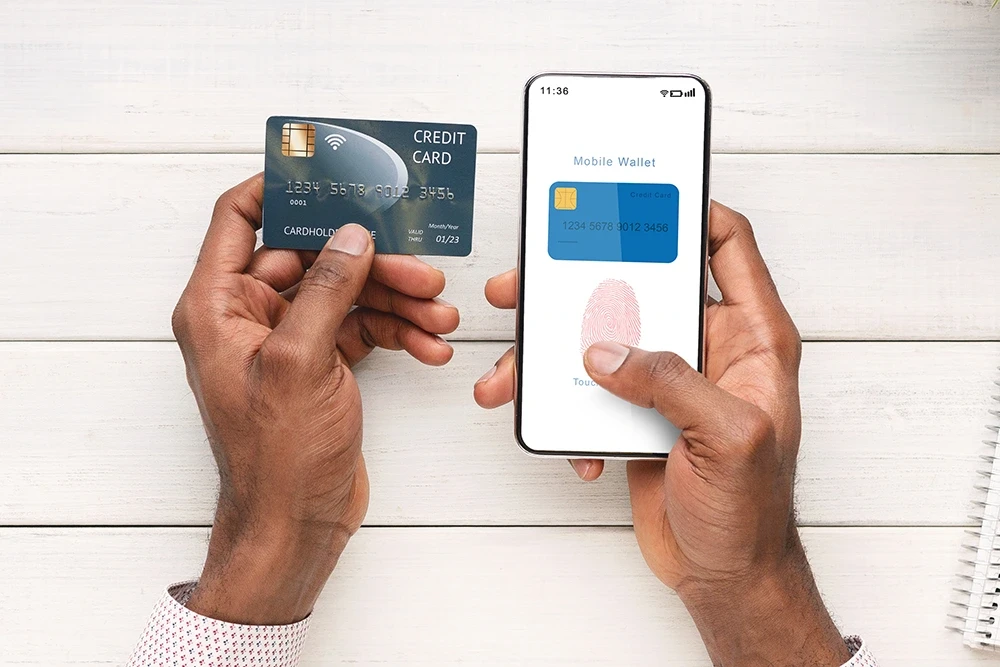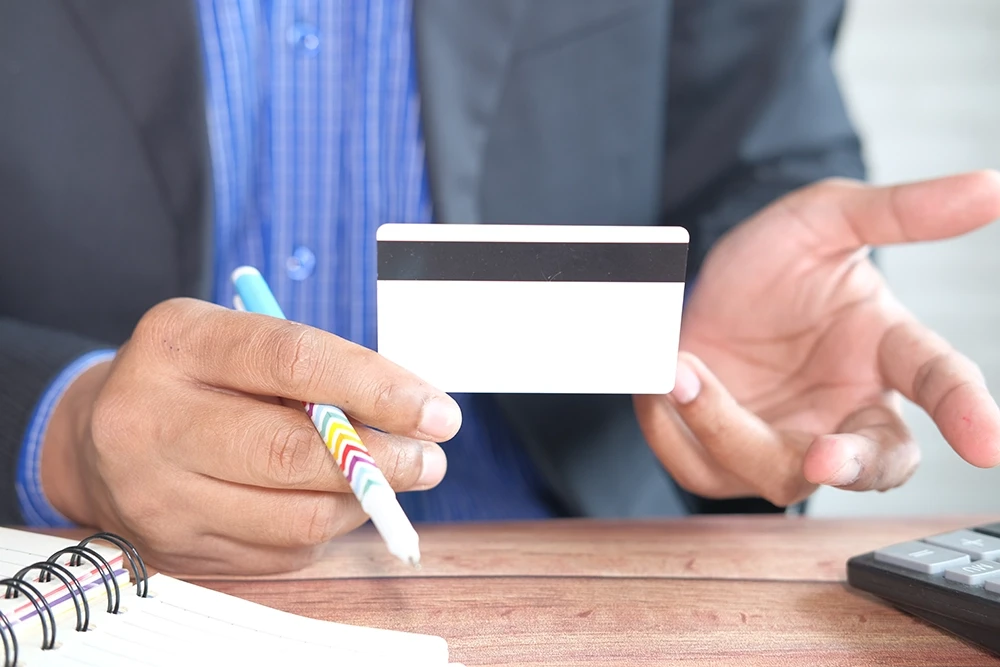When you receive your credit card statement at the end of your billing cycle, two figures are very prominent. One is the total outstanding, and the other is the minimum amount due.
Ideally, you should pay off the total outstanding! But suppose you find it challenging to pay off your credit cards every month. In that case, the credit card providers expect you to pay at least the minimum amount to keep your account active.
So, let’s get into the details of what this minimum amount due on the credit card is and whether it helps or harms you.
What is the Minimum Amount Due in Credit Cards?
The minimum due on a credit card is the minimum amount you need to pay on or before the due date. It is a small portion of the outstanding every month. The credit card's minimum payment is usually 5% of the total outstanding balance on your credit card.
For instance, if the total due amount is ₹10,000, then the minimum dues would be ₹500 (the percentage depends from bank to bank), which is usually always feasible for you to give. Thus, if you pay ₹500 against your bill amount of ₹10,000, you are not charged any penalty.
But your minimum due amount percentage can be higher if:-
- You bought something on EMI using your credit card.
- You spent more than your borrowing limit.
- You haven’t cleared off your previous month’s dues, as the unpaid amount is added to the current minimum due amount.
How Do You Calculate the Minimum Amount Due on a Credit Card?
Most credit card companies set 5% of the total outstanding balance (calculated on the date of statement generation) as the minimum amount due. Let’s take an example - Assume that your credit card statement is generated on the 5th of every month, and your payment due is on the 26th of the next month.
Assuming that the minimum amount due is 5% of the outstanding balance and the APR is 3% pm, let’s calculate the minimum due on your credit card.
| Transaction Date | Type of Transaction | Amount of Transaction | Remarks |
| 20 April | Purchase | ₹ 10,000 | Interest-free period |
| 5 May | Statement generated | ₹ 10,000 | The payment due date is 26 May. The minimum amount due is ₹ 500 |
| 22 May | Payment | ₹ 500 | Paid minimum amount due on credit card |
| 27 May | Purchase | ₹ 15,000 | Not an interest-free period |
| 5 June | Interest | ₹ 682 | On the purchases |
| 5 June | Statement generated | ₹ 25,182 | Due date 26 June, the minimum amount due is ₹1259.1 |
Note: If the minimum amount is not paid before the due date, it will be added to the next month’s minimum amount due along with the late payment fee.
What are the Advantages of Paying Just the Minimum Due in Credit Card?
Paying only the minimum amount has the following benefits:
- It helps you avoid paying a late payment fee
- It allows you to manage your finances better, especially when you have a financial crisis
- It keeps your account active without the credit card companies reporting it as irregular.
- It doesn’t affect your credit score.
If there are so many advantages, then why do most financial experts insist on paying the total outstanding amount instead of the minimum due amount? Let’s discuss this now.
Why Paying Just the Minimum Payment on a Credit Card Isn’t a Good Idea?
Paying just the minimum due on your credit card each month may seem like a convenient approach. But it's important to understand why it's not the best strategy because:-
- If you pay the minimum amount only on your credit card, it reduces the current month's outstanding balance. But it does not effectively tackle your overall debt.
- Continuing to make minimum payments can lead to an increase in your debt due to daily interest charges on your revolving loan.
- Even if you abstain from new purchases, solely making minimum payments doesn’t diminish your debt and may potentially land you in a cycle of increasing indebtedness without realising it.
Thus, it’s essential to carefully manage how you repay credit card debts in order to avoid falling into a harmful debt trap caused by accumulating interest over time.
Let’s take another example to understand how paying only the minimum amount on a credit card increases your outstanding balance.
Assume this.
- Your credit card statement is generated on the 20th of each month.
- Your payment due date is on the 5th of the following month.
- The minimum amount due is 5% of your total outstanding.
- The APR is 3% pm.
| Date of Transaction | Type of Spending | Amount Spent |
| 20 June | Total outstanding | ₹ 20,000 |
| 5 July | Paid minimum amount due | ₹ 1000 |
| 5 July | Total outstanding balance | ₹ 19,000 |
| 10 July | Purchase | ₹ 2000 |
| 15 July | Purchase | ₹ 15,000 |
| 20 July | Total outstanding | ₹ 36,380 |
Excluding GST
Check the credit card outstanding amount. When you add the total purchase amount of ₹17,000 to the outstanding amount of ₹19,000, the total should have been ₹36,000 and not ₹36,380 for the billing cycle.
The extra amount is the interest being charged on the outstanding. When you repeatedly do not pay the total outstanding, the balance and new purchases get added up. The interest is charged on the latest outstanding.
In other words, if you continue to pay only the minimum amount due, you lose the privilege of an interest-free period. This is what happened in the above example. Credit cards offer excellent rewards and benefits. They are the best financial tools for quick access to funds, but only if they are used responsibly.
Freo offers different types of credit cards, each offering rewards and benefits that are designed to meet your unique requirements. Enjoy the benefits of a MoneyTap credit card at an interest rate much lower than most credit cards.
FAQs
-
What is the minimum amount due (MAD)?
The minimum payment required is only a portion of your entire bill that you must pay to the bank, even if you are unable to cover the whole amount.
-
How do you calculate the minimum due on credit cards?
The minimum payment required is 5% of your total outstanding debt, which is computed depending on the date you get your credit card statement delivered.
-
Does paying the minimum due affect CIBIL?
Paying the minimum amount on time prevents late fees but won't impact your CIBIL score. But it also means you end up paying more in the long run. There's a risk of defaulting within six months due to the growing repayment amount.
-
How can I increase my CIBIL score quickly?
If you want to increase your CIBIL score rapidly, you can do the following:
- First, pay off all of your present debts.
- Then, always pay your EMIs on time.
- Also, try to keep track of how much of your available credit you are using. It’s ideal to keep it as low as possible.
-
Is minimum card payment illegal?
There is no law requiring a minimum payment for card payments. This implies that firms have complete control over setting a minimum expenditure restriction. However, there is a catch: card networks have their own set of laws about this.
They claim that any business that accepts their cards is unable to put a maximum or minimum purchasing limit. Just something to keep in mind!
-
Can you just keep paying the minimum amount due every month?
Yes, you may keep your credit card active by only paying the minimum amount due each month. However, it should be noted that doing so would result in significant interest rates and no interest-free credit term. Remember that the less you pay on the outstanding balance, the more you pay in interest.













